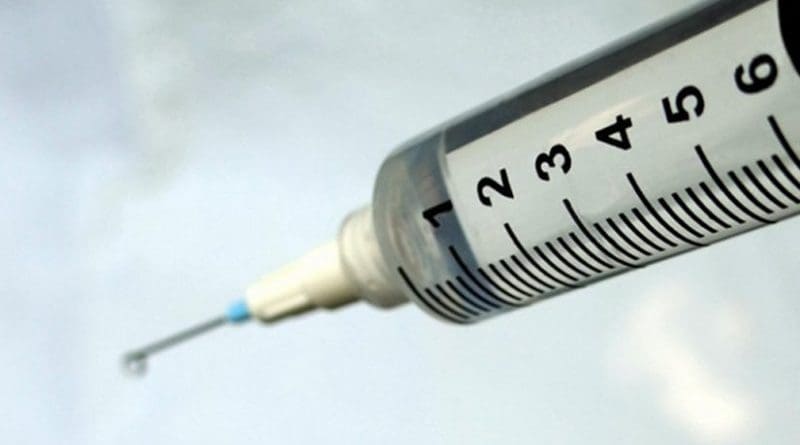Initiative Aims To Prepare Vaccines To Speed Up Global Response To Epidemics
The Coalition for Epidemic Preparedness Innovations (CEPI), which was launched Thursday at the World Economic Forum Annual Meeting, is an initiative to shorten the response time to epidemics by creating vaccines that could be released quickly once an outbreak occurs.
By financing and doing the research before a crisis erupts, CEPI would dramatically speed up the ability to counter the spread of an infectious disease such as Ebola. CEPI was conceived by some of the launch partners who met at the Annual Meeting in Davos a year ago.
The 47th World Economic Forum Annual Meeting is currently taking place in Davos-Klosters, Switzerland,
“This has grown out of the lessons learned – what was good about our response to the Ebola crisis and what went wrong,” said Erna Solberg, Prime Minister of Norway. “The international response was too late, but now we know how to respond faster the next time.”
With $460 million in initial funding from the Bill & Melinda Gates Foundation, the Wellcome Trust and the governments of Germany, Japan and Norway, and promises for a total of $700 million, the program involves the global vaccine manufacturers. With the advance work that CEPI will do, prepared vaccines could go straight to phase-three trials and get regulator approvals faster.
“What CEPI does is take the things that we do in battle and do them in peace time,” explained Andrew Witty, Chief Executive Officer of GlaxoSmithKline in the UK.
Epidemics have become more frequent in today’s interconnected world.
“What happens in Lagos will affect Davos tomorrow,” warned Jeremy Farrar, Director of the Wellcome Trust in the UK, who noted that there is still no licensed vaccine for Ebola. “The world is incredibly vulnerable.” With CEPI, “we will change the paradigm for how we get vaccines for these epidemics.”
Added William H. Gates III, Co-Chair of the Bill & Melinda Gates Foundation in the US: “Unfortunately, even though there is substantial risk for epidemics, there is not a natural market for vaccines. You have to get governments to create the right incentive structure. If you can predict what the pathogens are going to be and can get vaccines stockpiled, then that would be a very good response. This is a substantial step that deals with a problem that can keep you up at night if you aren’t ready for it.”
“We need to mobilize this research,” agreed Alpha Condé, President of Guinea. “If we had had a vaccine a lot quicker, the Ebola epidemic wouldn’t have spread as far. We want to see a vaccine that is 100% effective and financed.” He said he hopes that CEPI would not only allow for a quick response to a disease outbreak, but would also help countries like Guinea develop the local capability to react to healthcare emergencies.

